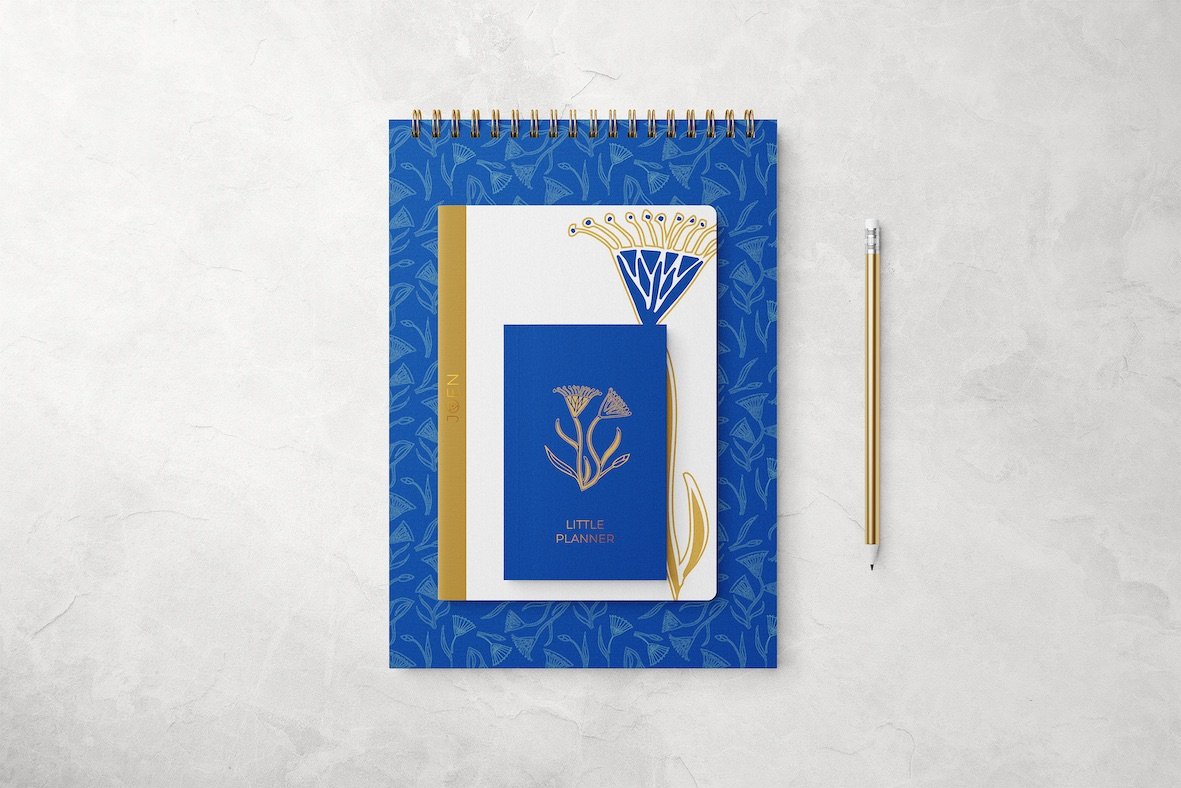The Difference Between Surface Design and Graphic Design
Understanding how these two design disciplines work and why both matter for your brand.
When people think of design, they often picture logos, layouts, and digital graphics. But there’s another creative discipline that shapes how products look, feel, and connect surface design.
While surface design and graphic design share creative roots, they serve very different purposes. Understanding the difference helps businesses make informed decisions when developing products, packaging, or branded collections.
What Is Surface Design?
Surface design focuses on creating original artwork, illustrations, and patterns that decorate physical products. It’s the art of designing what appears on the surface of things, from textiles and stationery to homewares, packaging, and lifestyle goods.
At JOEN, surface design means crafting distinctive, design-led patterns and illustrations that turn products into something unique, desirable, and commercially strong.
What Is Graphic Design?
Graphic design is all about visual communication, creating layouts, branding, and marketing materials that deliver a clear message and visual identity.
Graphic designers work on:
Brand identity and logo design
Packaging layouts
Marketing and digital materials
Typography and layout systems
The goal: to communicate information clearly, consistently, and beautifully across print and digital platforms.
Simply put, surface design transforms products, while graphic design shapes how a brand communicates.
Where the Two Meet
Surface design and graphic design often overlap, especially in packaging and product branding.
For example:
A candle box might feature a graphic layout (logo, text, hierarchy) and a surface pattern that makes it stand out on the shelf.
A stationery brand might use illustrated artwork within a consistent graphic system to create a cohesive product range.
When the two work together, the result is design that connects visually and emotionally, giving your brand an authentic and memorable presence.
Why the Difference Matters
For brands and manufacturers, knowing the distinction helps you:
Choose the right creative expertise for your goals.
Develop products that stand out with originality.
Align packaging and visuals with brand strategy.
Build stronger design consistency across collections.
At JOEN, we blend the strategy of graphic design with the artistry of surface design, creating visuals that are both beautiful and commercially effective.
In Summary
Surface Design → Art for products (patterns, illustration, decoration).
Graphic Design → Visual communication (branding, layout, and identity).
Together, they create a bridge between aesthetic impact and strategic clarity.
Whether you’re developing a new product line or refreshing your packaging, working with a studio that understands both disciplines ensures your brand visuals connect, perform, and endure.



